- Apply
- Visit
- Request Info
- Give



Published on August 29, 2022
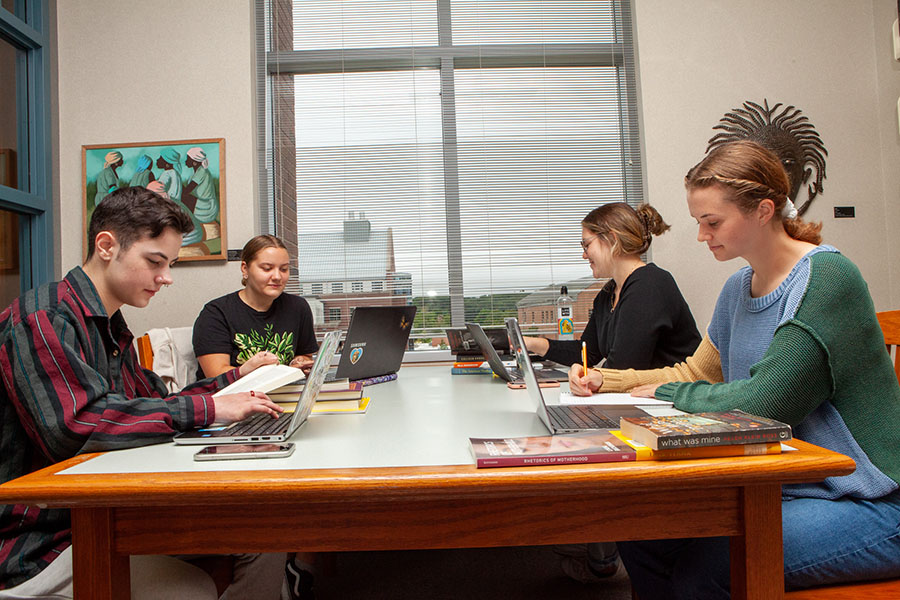
Eastern hosted three Summer Research Institutes (SRIs) at the conclusion of summer break. Occurring from Aug. 22 – 26, the weeklong institutes engaged 29 students in the fields of English, business/economics and political science. The SRIs culminated on Aug. 26 with presentations in the Webb Hall auditorium.
English Institute
Titled “Finding Your Scholarly Voice,” the English institute was led by Professor Allison Speicher and peer mentor Faith Parker ’23. Speicher said her institute answered the question for students—what is research in literature? She said that for many new English majors, it is difficult to imagine just what literature scholars do besides reading books.
“This workshop helped students develop skills in research and analysis that they can employ in a wide range of contexts, and to appreciate the sheer diversity of texts that get studied in English departments, from picture books to film adaptations to canonical novels,” she said.
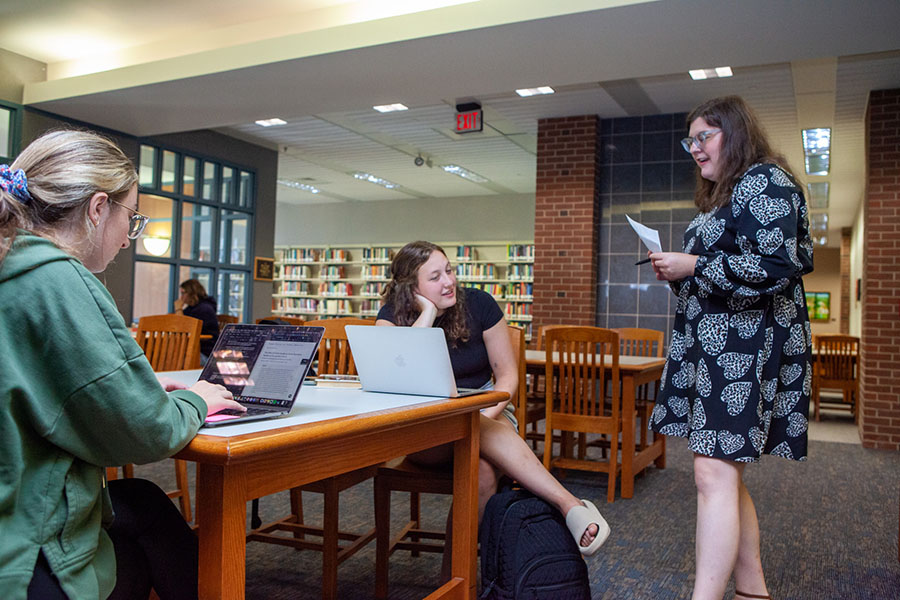
“Students focused their individual research on the literary texts of their choice. The freedom to select their own text to study allowed students to begin discerning their own scholarly interests with one-on-one support from the instructor and peer mentor, which will help them select their concentrations in the English major and make smart choices regarding future courses.”
“I am so impressed to see that these students, who came in with just vague idea (on research), now have outlines and theses (concepts) for important social and cultural projects,” said Parker. “This week has given me insight for my own capstone paper on intersectionality and the Black child in typically white 19th century children's literature, and the purpose (this character) served within those text. My experience in the research institute has made me more confident in my teaching abilities while also validating the research methods that I utilize.”
Speicher said by focusing on the skills necessary for crafting meaningful and original arguments about literature—locating a variety of relevant sources, using sources to inspire innovative research questions, and finding and filling gaps in the critical conversation—the institute “helped students get beyond relying on the results of simple searches via Google or JSTOR.”
“This institute has allowed me to work with fellow scholars in my major, which is so refreshing when beginning a project such as a 25-page thesis paper,” said Phoebe Gediman, a junior who majors in English and Secondary Education. “Before this (institute), I had no idea about what I was going to write my paper on, when I was going to conduct the research, or what capstone route to take. Now I (have a plan) to continue my research this fall semester and be done with my thesis by the end of this spring!”
Political Science Institute
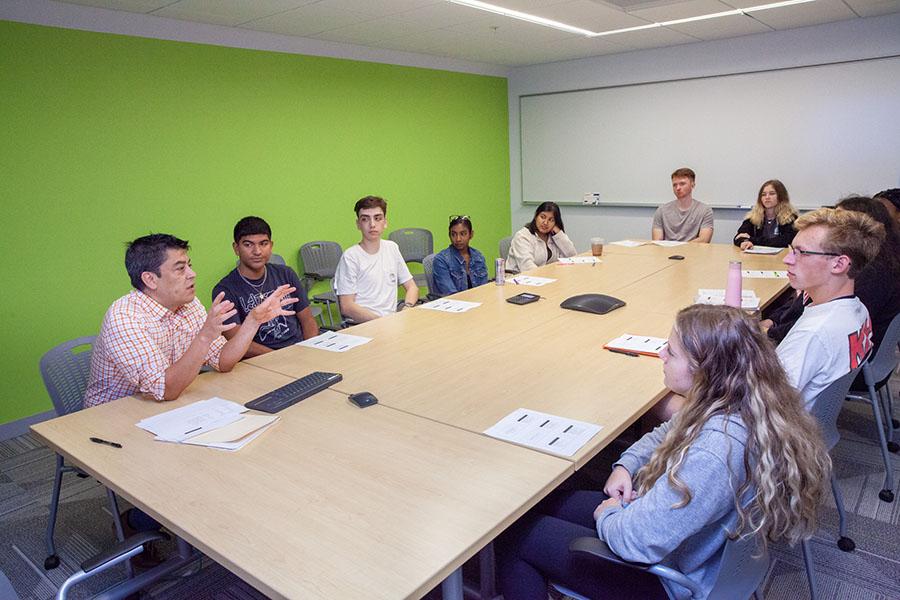
Titled “How Political Science Defines Ideology and How to Measure it,” the political science institute was led by Professor Martin Mendoza-Botelho and peer mentor Trevor Mays ’23.
The institute posed the questions: What is social science research? And, what makes a good research question?
During the week, students learned about different research methods, quantitative research, basic statistical tools, as well as how to navigate bibliographies/citations and how to define ideology in a quantitative way.
“More than ever, cross-cutting research in the social sciences is essential to address pressing issues in our societies, from climate change to reproductive rights, and these students are getting ready for the monumental challenges that their generation will face,” said Mendoza-Botelho.
“Based on their comprehensive and well thought-out research agendas, (these) students will expand our knowledge in issues such as the rights of refugees, the socioeconomic effects of climate change, the reversal of reproductive rights in advanced societies and many other relevant topics.”
“The summer institute gave us the sharpest tools needed to cut into the world of research, which are obviously going to come in handy,” said Matthew Julius, a sophomore majoring in Political Science. “I'm planning to use what I've gathered from the program to analyze the effects of 1980's de-regulation on the American economy. I plan to attend law school in the future, so research will certainly be a big factor for me in years to come.”
Management/Marketing and Economics/Finance Institute
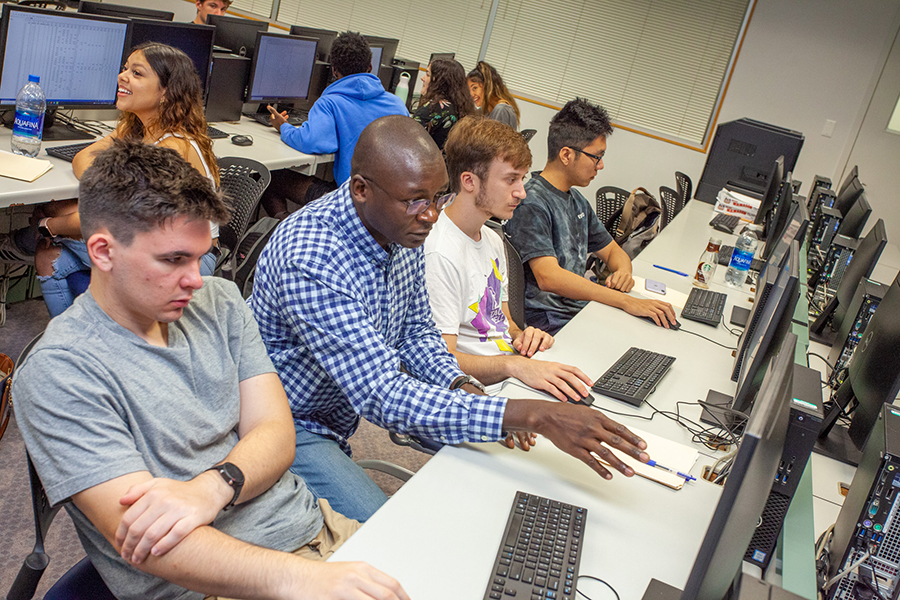
Titled “Collaborative Research: Research Experiences for Undergraduate in Big Data Analytics in Healthcare,” the business/economics institute was led by Professor of Management Fatma Pakdil and Steve Muchiri, professor of economics, along with peer mentor Matthew Kiernan ’23.
According to the professors, the healthcare industry has generated large amounts of data in recent decades, and that effective analysis of this information can bring about the ability to detect diseases early on, predict certain developments or outcomes, and identify at-risk patients for health complications.
The institute used nationwide Healthcare Cost and Utilization Project (HCUP) databases to help students understand how to make better informed decisions. The institute promoted an insight into healthcare “big data” repositories; promoted a collaboration and answered research questions in healthcare management; helped students learn how big data is used in decision-making processes in healthcare; created intellectual, methodological and communication foundations for students to conduct interdisciplinary research at the intersections of data analytics and healthcare management; and encouraged and motivated undergraduate students to build a career in research and scientific disciplines.
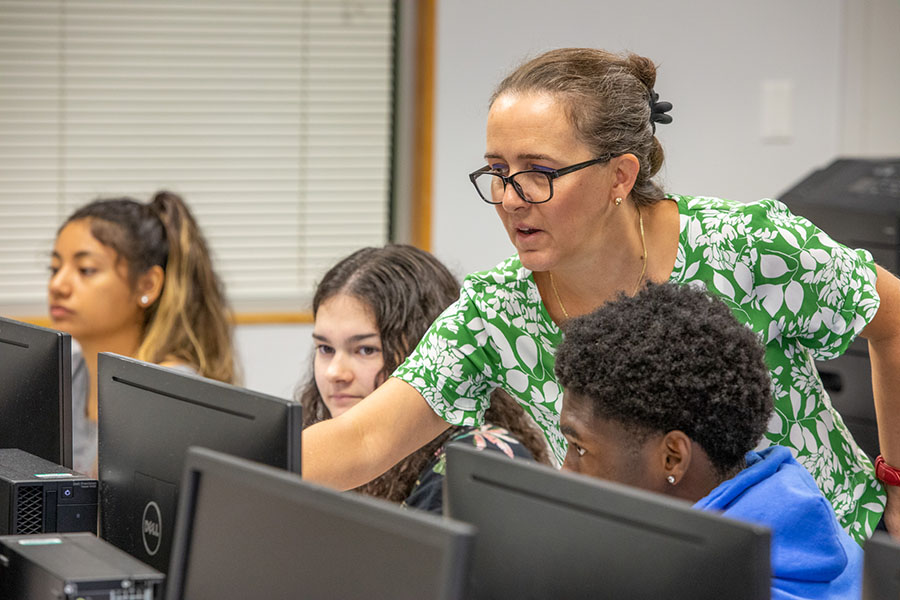
The professors had two major goals. At the macro level, they “exposed students to healthcare management related issues; enabled students to research the dynamics of healthcare management systems; and helped students analyze and understand the role of big data in decision-making processes in the healthcare industry.”
At the micro level, they helped students to analyze the readmission and length of stay (LOS) trends of pneumonia patients between 2010 through 2018 at a national scale using the Nationwide Readmissions Database (NRD) provided by the HCUP in the U.S.; helped students examine the impact of LOS on the likelihood of hospital readmission, with an emphasis on discharge disposition and patients underlying conditions; and illustrated to students the various readmission trends depicted by patients under different payers, medical comorbidity, and discharge disposition.”
Written by Dwight Bachman